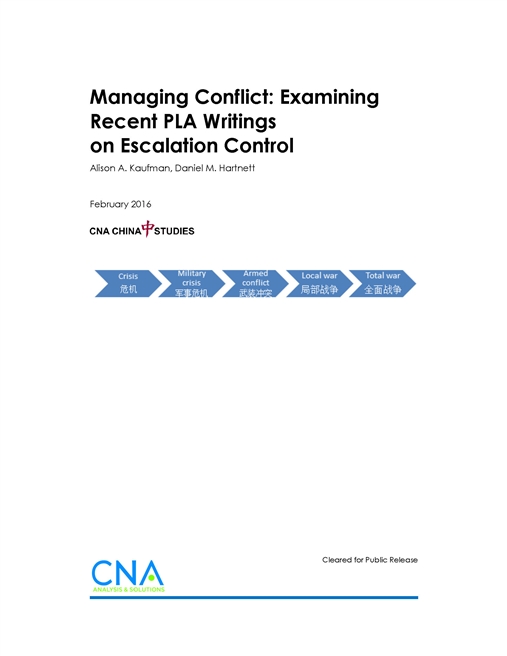Background
The way that different countries approach the concept of escalation of a crisis or conflict is an enduring issue of interest for those who follow military affairs, and has critical implications for the way that strategists and decision-makers in one country perceive the actions and intentions of those in another.
The purpose of this study is to update our understanding of how people in China’s People’s Liberation Army (PLA) write about escalation control. This report draws on over two dozen PLA writings, most issued since 2008, to explore the current state of PLA thinking on the topic. We focused on PLA views of conventional conflict, i.e., escalation dynamics short of nuclear war.
Key findings
State of Chinese thinking on escalation control
Escalation control is an area of focus for the PLA. The PLA has produced copious writings on the topic since 2008, and stresses the importance for China’s future peace and stability of understanding and implementing escalation control.
- Controlling crisis and conflict is an essential mission for the PLA, handed down by higher authorities.
- PLA writings tend not to use the term “escalation control.” Rather, they use the phrases “war control,” “crisis management,” “crisis control,” “war situation control,” and “war termination.”
Recent PLA writings on conflict escalation show some areas of evolution from earlier periods. Issues on which we saw change from the past include:
- an ever-growing focus on crisis management as an essential element of conflict control, and
- an increasing awareness within certain parts of the PLA that conflict may occur as the result of accidental or inadvertent escalation.
Unlimited distribution.
Details
- Pages: 112
- Document Number: DRM-2015-U-009963-Final3
- Publication Date: 2/11/2016
